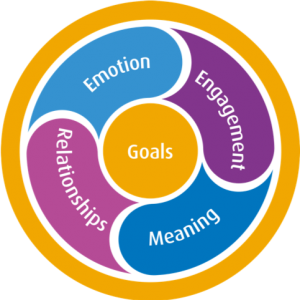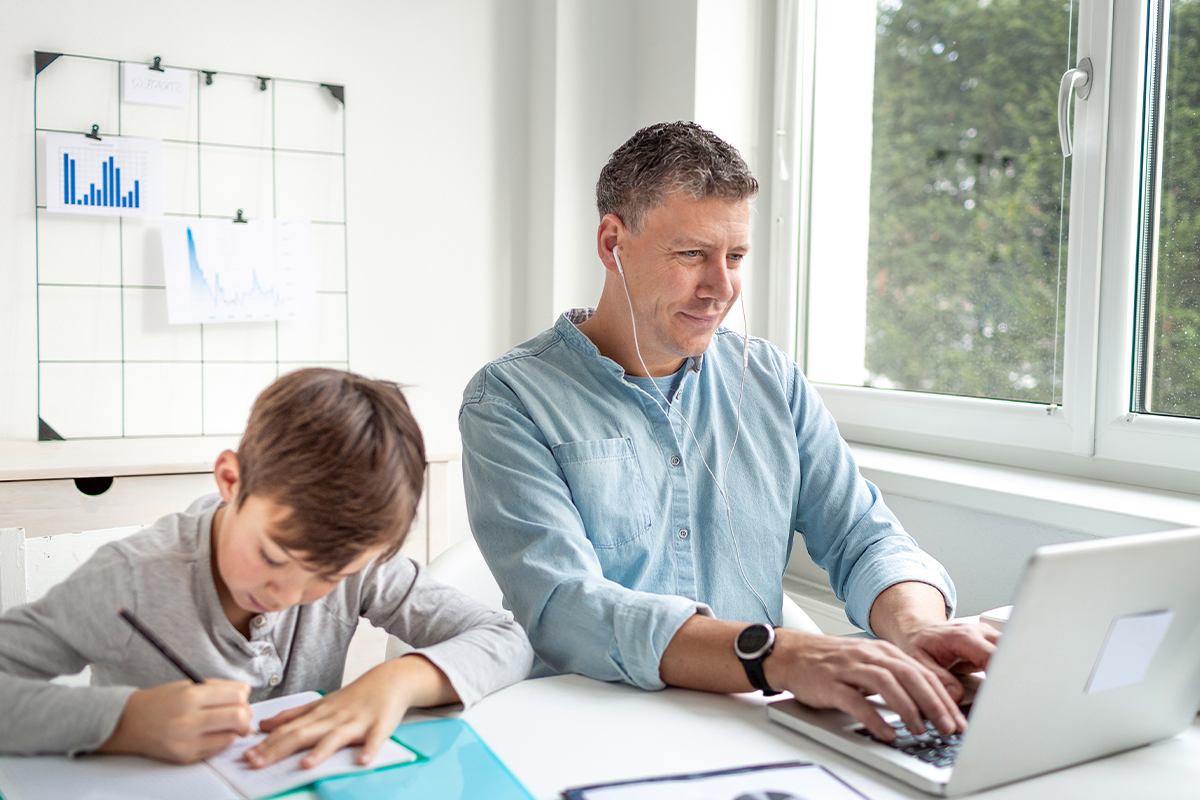What is positive psychology?
Positive psychology is the scientific study of optimal performance and wellbeing, and is contributing new, powerful insights and proven strategies to help individuals, organisations and communities thrive.
The positive psychology movement – now over two decades old – has spread rapidly across social and human sciences over the past decade or so, spearheaded by Martin Seligman in 1998. It is offering a fresh lens to address some of today’s most pressing issues.
By challenging traditional psychology which focuses largely on the negative, positive psychology aims to cultivate flourishing by understanding what is good in people and life, in order to help individuals live happy, productive, healthy and fulfilling lives.
Far from ‘happyology’, positive psychology is a rich study of what makes life worth living in all its complexity, and goes hand in hand with traditional mental health interventions. In fact, studies have shown that the effect of positive psychology interventions may last longer and produce greater wellbeing than traditional psychotherapies.
What factors contribute to wellbeing and resilience?
Five positive factors known as PERMA2, while not the only beneficial ingredients underpinning positive psychology, can be seen as building blocks that maximise wellbeing, and gear people and human systems toward flourishing, and away from stress and burnout.
Positive Emotions – Amplifying positive emotions and minimising the impact of negative emotions.
Positive Engagement – Engaging in activities and environments that energise and enhance satisfaction, fulfillment and connectedness. This encompasses emotional, social, work and civic engagement.
Positive Relationships – Building positive relationships that are a source of support, energy and enrichment to the individual, those around them and the wider society.
Positive Meaning – Reinforcing positive meaning where people feel like they are engaging in purposeful work and a worthwhile life that brings value to themselves and others.
Positive Goals – Pursuing positive, self-concordant goals and striving to master and accomplish them.

How can you practice positive psychology in your everyday life?
One of the best ways to put positive psychology into practice and start living a more satisfying, fulfilling life, is to look for ways to increase the duration and intensity of your ‘ups’ and reduce the duration and intensity of your ‘downs’.
“The quality of your life is directly related to the quality of your emotions.” 3 – Sue Langley
Each person has the potential to learn a growth mindset, the capacity to see themselves and others as a work in progress. The more we practice a growth mindset and recognise our unique power to make conscious positive choices, the greater difference we can make to our own and other people’s wellbeing.
How can you learn the practical tools and techniques to do this?
The Langley Group’s free eBook ‘7 Ways to Apply Positive Psychology’ introduces you to some of the most practical and research-backed ways to apply positive psychology to increase happiness, wellbeing and effectiveness—in your life, at work, at home and with the people you care for, help and lead.
Download your free eBook here.
The Langley Group Institute also offers the world’s only Diploma of Positive Psychology and Wellbeing: university-level content and inspiring applications in real-world contexts, synthesising the science of positive psychology, emotional intelligence and neuroscience into simple, practical tools that anyone can use. The course equips you with the knowledge, skill and competence to apply positive psychology to increase individual, collective and business wellbeing.
What difference can positive psychology make?

Another one of our Diploma of Positive Psychology and Wellbeing students, Deb Vanderwerp found herself attracted to the course during a time that she was battling to take care of herself well. She was tired, drained and needed a shot of something that would help her through. The course provided her with techniques in areas such as emotion management, gratitude, flow creation and savouring, enabling her to flourish in her relationships, her marriage, her workplace, and within her broader community.
Tragically, not long after completing the Diploma, Deb lost her husband in a motorcycle accident. Whilst the tools she learnt during the Diploma did not take away the pain of her loss, she says that they were key sources of the ‘strength’ she found to move through each day.
“The Diploma had given me the language and the science to understand what the boys and I were experiencing and a way to manage the stress.” – Deb Vanderwerp
The 11069NAT Diploma of Positive Psychology and Wellbeing is a positive and engaging, life changing experience – completed through virtual live learning webinars or face to face immersion. You can learn more about the course here.
And so….
Positive psychology does not contradict or contrast traditional mental health practices. It complements them by changing our thoughts and actions for the better.
With that in mind…
- Focus on what is working well and how it can work even better. Do this without being blind to weaknesses, the realities of negative experience and the full spectrum of human emotions
- Find ways to activate the potential for health, happiness and excellence within all people by guiding them to take positive actions and supporting them to succeed
- Help people build strengths and resources so they can succeed during challenging as well as benevolent times. Be a positive energiser so that others may benefit from your positivity
- Create environments where positive emotions predominate and creativity, learning and growth is cultivated daily
- Reset the bias we often hold toward the negative and spark upward spirals by amplifying positive emotions, engagement, relationships, meaning and accomplishment
- Set positive goals to keep learning and experimenting with positive psychology to make small, yet significant differences every day
References
- Seligman, M. E. P., Rashid, T., & Parks, A. C. (2006). Positive psychotherapy. American Psychologist, 61(8), 774-788. http://dx.doi.org/10.1037/0003-066X.61.8.774
- Seligman, M.E.P. (2011). Flourish: A visionary new understanding of happiness and wellbeing. Simon & Schuster.
- Barsade, S.G., & Gibson, D.E. (2007). Why does affect matter in organizations? Academy of Management Perspectives, 21: 36-59.
- Fredrickson, B. (2009). Ibid.
- Tal Ben-Shahar (2007). Happier; Learn the secrets to daily joy and lasting fulfillment. McGraw Hill.
- https://www.amazon.com.au/Happier-Learn-Secrets-Lasting-Fulfillment-ebook/dp/B003XNTU5M





